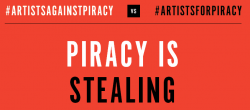Weekly News Roundup (13 October 2013)
A heads up to our Australian readers, you can win one of 3 Google Chromecast devices that my new website, streambly.com.au, is giving away. A Facebook like is required to access the entry form (I know, I know) – more details here. I’ve been playing around with the Chromecast, and it’s a nice little device. Very useful for those that prefer to watch YouTube videos on a big screen, or those invested in Google Play. The browser and desktop mirroring is also very useful.
On to the news …
![]()
It didn’t take long, but the MPAA was never going to just ignore a report from the hugely influential London School of Economics (and Political Science) that attacked the biased and fervently ideological “debate” of the Internet piracy question, especially in the political arena. The MPAA’s rebuttal, on several key points in the report, unfortunately seems to have completely missed the point.
Instead of accepting the argument that data from the film and music industry are often one-sided, and that the industry as a whole was too defensive when it came to others (including scholars, like the ones from the LSE) making counter-arguments, the MPAA decided the best approach was to become way too defensive against the counter-arguments made by the LSE scholars.
As with most ideological crusades, there is no gray area. Either piracy is going to destroy the entertainment industries, or that it is completely harmless. I will gladly put my hand up and say that I am guilty of taking part in the crusade, making arguments and using facts that, while opposite of what the MPAA will try to tell you, may still be far too one-sided objectively speaking. I will argue that I have done what I have done as a response to the constant stream of bias that the other side comes up with, but that’s probably not an excuse.
The truth is that piracy does hurt the creative industry. Probably more so than the minor annoyance people on my side of the fence likes to think, and much less than the absolutely apocalyptic scenario that the MPAA and their ilk paints. But I’m a pragmatic man, and for me, what counts are solutions, not complaints. I believe the best way, and maybe the only way to fix the piracy problem (and yes, it is a problem that needs to be fixed) is to innovate. The MPAA, while frequently mouthing support for innovation, believe that technological and political solutions are the way forward. A biased scare campaign is simply the best means to an end for the former (I’ll let the actual batting record for technological solutions to speak for themselves), and that’s what the LSE media brief is warning against.
And it’s not just the piracy debate. Almost every debate these days lacks the nuance that’s needed to come up with any kind of consensus, let alone a solution. Some are guilty more than others, but we’re all guilty of it in some way. I guess we just don’t have the time and energy to come up with nuanced positions, or just don’t have the required knowledge (the media have to take some blame for this). Although in my opinion, unending and needless arguments wastes more time and energy and hurts all of us, regardless of which side of the debate we think we’re on.
London seems to be the center of controversy this week, as the City of London Police’s Operation Creative may have forced several domain registrars to breach ICANN policies and to open themselves up to lawsuits, when these registrars, at the request of the police, suspended and seized several Torrent related domain names. Among the best known websites caught in Operation Creative are SumoTorrent and ExtraTorrent, the latter is now threatening to sue their domain registrar.
Apparently, police acted without initiating any legal proceedings against these websites, and under ICANN rules, seizures cannot happen without due process. At the very least, these domain registrars should allow the rightful owners of these domains to transfer to another registrar, under ICANN policies.
While you can blame these registrars, who didn’t have to act if they did not want to, you also have to question the actions of the London Police. You can definitely argue that they used their position of authority to scare these registrars into acting, knowing full well that there is no legal basis for the domain seizures at all, as these websites have not been proven, in a court of law, to be acting illegally at all. That the police were probably fed information by copyright lobby groups, and in essence, are acting like the entertainment industry’s private police force, makes this story all the more disturbing.
This incident also brings back bad memories for yours truly. If you can remember back to January when our domain name was similarly suspended, ironically happening around the one-year anniversary of the defeat of SOPA. Our domain was seized due to an IP address that used to allocated to our domain name, but one that no longer has any association with us, being used for suspected illegal activities. It was akin to getting arrested for the act of a total stranger, just because he now lives in a house that you once lived in. Many many years ago. We have yet to recover fully, and may never recover fully, from this particular incident.
Our registrar at that time could have simply contacted us for clarification, which would have resolved the issue without any disruptions, but instead chose to act first and ask questions later (or never, if I had not contacted them) to protect their own interests. The same rationale that the registrars targeted by the London Police were acting under, probably.
The moral of our story, and the story of these Torrent websites (and for any website owner, probably) is to find yourself a proper domain registrar, one that has enough strength to resist bullying tactics and are willing to defend their customers and stand up for their own legal rights. Like EasyDNS, who resisted London Police’s call to have TorrentPond’s domain name seized.
At the very least, find a registrar that has a good 24/7 support system and one that is willing to talk to its paying customers before bringing down the ban hammer.
![]()
Well, someone had to ask. As an owner of Microsoft’s HD DVD add-on for the Xbox 360, one of the thousands of people that made in the investment in the heady days of the HD format wars, the inclusion of Blu-ray playback in the Xbox One does hurt a bit.
But what if you were to plug in the HD DVD add-on drive into the Xbox One console? Would Microsoft, feeling sorry for us losers and build in a little surprise and allow our dust collecting HD DVD discs to be playable (alongside our large collection of Blu-rays)? Someone did ask the question, and Microsoft’s Director of Product Planning Albert Penello was kind enough to offer a definitive answer.
Oh well, someone had to ask.
Sick and tired of not being able to view your favorite YouTube funny cat videos when your smartphone or tablet is not connected online? Worry no more, as starting next month, you’ll be able to pre-download YouTube videos for offline viewing without having to resort to YouTube-policy-breaking tools.
Thanks to a DRM that YouTube has already been using to rent out content, users will soon be able to pre-download videos for offline viewing, with the DRM ensuring the 16 hours of fail compilations you have queued for later viewing will be viewable offline, and then automatically disappeared after the 48 hour viewing window.
Uploaders can opt out of the system, although they have little reason to do so because ad revenue will still be available via the pre-downloaded in-stream ads, and even view counts will be counted when offline viewing data uploads to the YouTube servers the next time the app connects online.
I guess this is a welcomed feature, although I’m not sure how I feel about DRM being applied to videos that were free to begin with (some of them free as in copyright free, or creative commons). And there may be legal issues as well. Now that YouTube is not only a video streaming service, but a video download service, what does this mean, from a legal point of view, for infringing videos that can now be downloaded and viewed offline?
But I guess anything that means more funny cat videos, more of the time, is a good thing.
On that note, I shall go check out some more funny cat videos (this link is neither a video, nor funny, but it is a cat, and it it awesome). See you next week.


